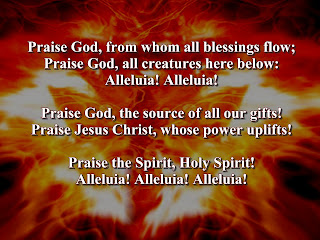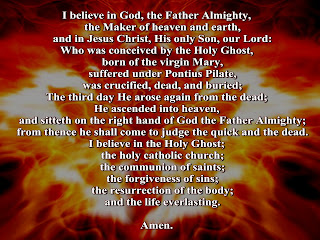
Good morning Sunrise! I hope that you all have had a good week and have experienced God in some form.
You know, I have had a week that had this strange recurrence for several days. Have you ever had something like that? For the last week or so, I have on several occasions turned the radio or TV on to hear or see Olivia Newton-John in Grease, singing, Hopelessly Devoted. Now what’s really strange is that each time, it has picked up almost at the same spot!
Then, it got stuck in my head! I am glad that I never unintentionally sang it out in public. Or did I? Maybe that’s why people were looking at me strangely in Costco the other day.
Anyway, it got me to think about that key word in the song, “devoted.” It’s one of those words that we often use without really thinking about what we are saying. Even in our conversations about God.
This morning, we are looking at the third part of this series, reACTS, in which we are surveying the Book of Acts, its major themes, and how we, the modern day followers of Jesus are also called to react to God’s activities in our lives.
Let’s begin with thinking about this question,
“What are you devoted to?”
Take just a moment to share with those around you your response.
[Allow time for discussion]
[Ask for responses]
[Ask why they are devoted to this]
We offer our devotion to that which we value and adore.
One of the things that I value as a pastor is Church Growth. But I am not just speaking about numerical growth. I am just as concerned with the growth or maturing of those who profess to be followers of Jesus.
Our passage of scripture today speaks about the growth of the early church. Let’s take a look at it in Acts 2:42-47
Acts 2:42-47
42 They devoted themselves to the apostles' teaching and to the fellowship, to the breaking of bread and to prayer. 43 Everyone was filled with awe, and many wonders and miraculous signs were done by the apostles. 44 All the believers were together and had everything in common. 45 Selling their possessions and goods, they gave to anyone as he had need. 46 Every day they continued to meet together in the temple courts. They broke bread in their homes and ate together with glad and sincere hearts, 47 praising God and enjoying the favor of all the people. And the Lord added to their number daily those who were being saved.
Now if you remember two weeks ago, I emphasized one verse, Acts 1:8, which says,
8 But you will receive power when the Holy Spirit comes on you; and you will be my witnesses in Jerusalem, and in all Judea and Samaria, and to the ends of the earth."
I emphasized it as being one of the key verses in the Book of Acts because it establishes itself as the mandate for the disciples. In other words, it can be seen as their command from Jesus or their authorization to act on his behalf.
Today’s passage reading also contains one of the key verses of the whole book of Acts, that being the first one we read:
Acts 2:42 They devoted themselves to the apostles' teaching and to the fellowship, to the breaking of bread and to prayer.
In other words, what the author, Luke, is demonstrating here is that these early church leaders and members here adopted a communal life.
Unfortunately, in today’s vernacular, the word commune has developed some negative connotations
- Commune – cult
- Communism – bad form of government
- Community – isolated homes clustered around each other.
These are not examples of what the Spirit is working for and towards with the church though.
Let’s take a deeper look at how God envisions the Church by looking at these facets that are giving here to us:
Teaching of the Apostles
This aspect was very crucial in the early stages of the church because it established the doctrine, that is what the followers should believe about Jesus and a commonality of thought.
Just like when something good comes about today, there are others who come along and copy the idea to try to cash in on the success.
As you followed the readings of the GPS this past week, you read the story yesterday about Simon the sorcerer yesterday who wanted to buy the power of the Spirit, for which he was quickly rebuked.
But, you know, in our modern times, we haven’t learned very well either. Because so many people do not take the time to engage in real study of the Bible, we have developed what I sometimes call, “Chistianity Lite,” in other words, we have been exposed to just enough Christian thought to be thoroughly inoculated from it.
Christianity Lite has no depth and no power behind it. It is all but worthless.
Now I know some say they don’t need to study the bible because God gave them the mind to think and rationalize. Friends, do we want our medical doctors not study? Do we want our tax agents to just go with their gut?
The same goes with our faith and beliefs. It can’t just be our reasoning.
Fellowship
Now, we come to this word, fellowship. For most of us here, we have heard this word for quite a while because it really is a “churchy” word. Other groups use it, but primarily it is one that is normally associated with the church. The question I pose this morning is, what does it mean?
In the Greek vernacular, which is the language the New Testament was written, the word that is used is:
Koinonia, which means “caring and sharing.”
This was an important principal for the early church as they were always under scrutiny, and sometimes, fatal attacks. The church needed a place where they could come together without fear of harassment and persecution. They needed a place, a group of like-minded people, where they could freely express their desire for Jesus and be supported when then experienced hardship.
While in the U.S., we may not be outwardly persecuted for our beliefs, we still need a similar support system. Outside of the confines of a community of faith, most of the world is all about power and control. People stab each other in the back to get a promotion or a raise or to be recognized. For the most part, the world promotes individualism and narcissistic attitudes – exactly opposite of what Jesus proclaims. IF left on our won, we gravitate towards the predominant belief system, which tends to tear down and destroy. But koinonia is about lifting up the holy, building up, not tearing down. This is still an attribute needed today.
Breaking Bread
Who wants to take a guess at what this means?
[Allow response]
Believe it or not, as I study the scripture, I have come to believe may not be a reference to what we call communion, but to a common meal. I believe that this is an extension of fellowship.
Think about it this way; what do friends do on a pretty consistent basis? They eat together. Sharing in a meal with someone else is a great way to establish a relationship with each other. How many of us went out to eat on their first date?
It could be argued that there is something holy about sharing a meal. It’s kind of hard to be mad at someone when your faces are covered with ketchup or barbeque sauce. It brings people together and starts creating that connection point. It promotes unity by focusing on hospitality and is symbolic of the social and spiritual solidarity.
I believe that is exactly why Jesus chose to use a meal to create that brotherhood with the first disciples. It is why we celebrate communion with a common meal.
Prayer
Of course, this last facet is a crucial component, prayer. This is the part that continues to unite them with God, through the intercession of the Holy Spirit.
The value of prayer cannot be overemphasized. To not be engaged in deliberate and intentional prayer would be like having a team who never listens to their coach, a corporation that never heeds the commands of the CEO, children who never seek their parents approval or discipline.
But prayer also acts on the interpersonal level as well. Because the church is comprised of individuals who live different lives and have different time schedules, it unites and strengthens through time of separation. It reminds us that we are part of something greater than ourselves. We are members of a family, God’s family.
Thus, we learn from our predecessors. We see how they reacted to Jesus mandate to be his witnesses. We also see how they reacted to the Spirit’s prompting to unite them with an unbreakable bond.
From our study of Acts, we come away with the understanding that growth is the result of being faithful in our calling to follow Jesus. Growth involves our personal maturity as a follower and as we grow personally, the Spirit blesses others and the church grows numerically. Now, let us reACT.



